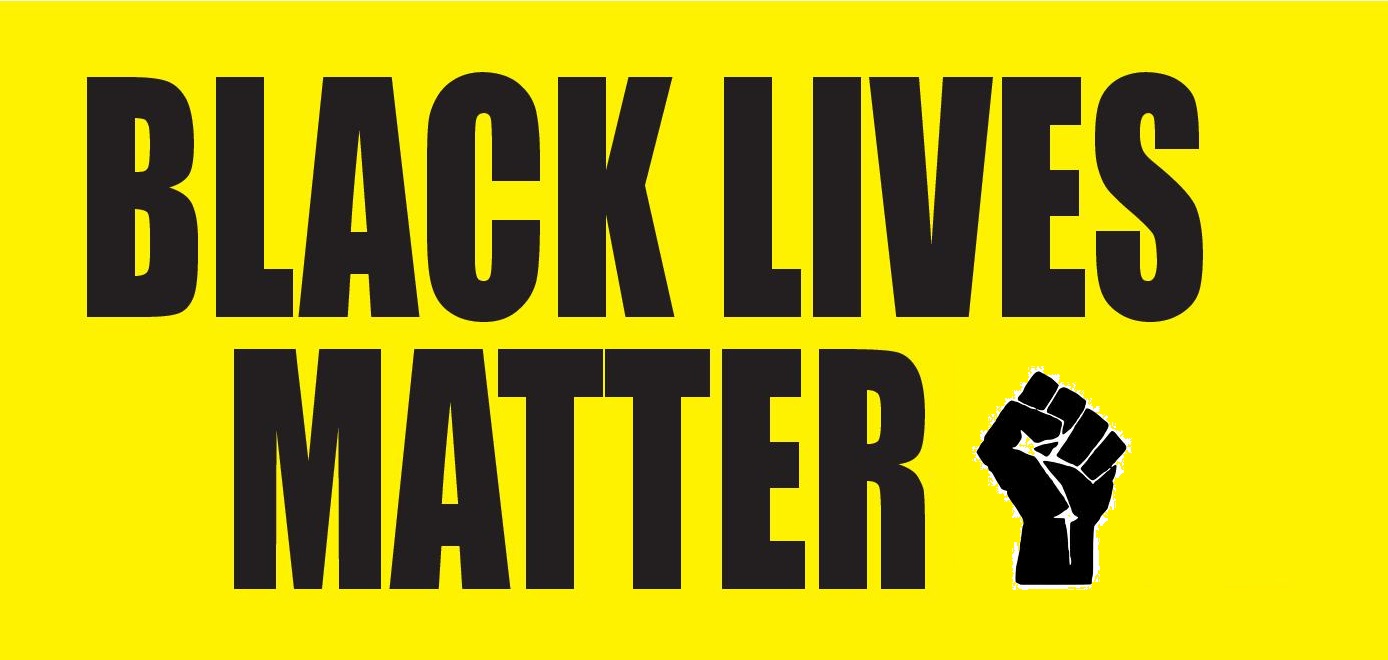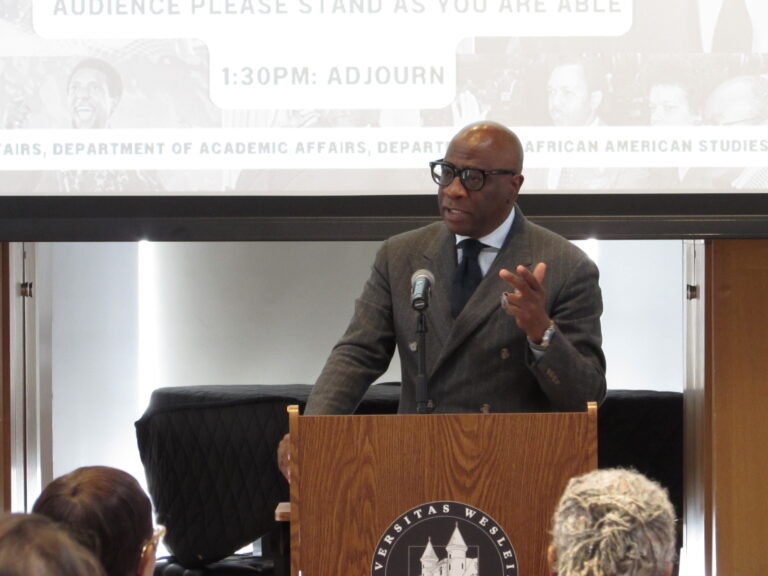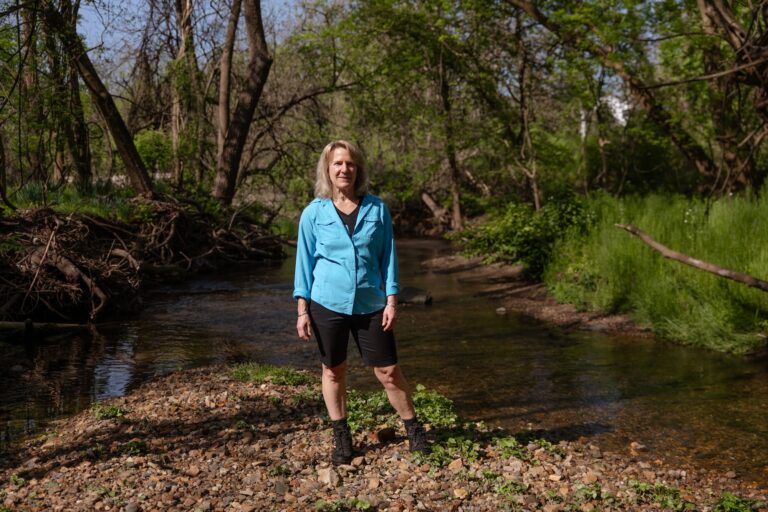The Wesleyan Argus Stands in Solidarity with Black Lives Matter
Content Warning: This post contains references to state-authorized violence against Black people, with mention of potentially triggering incidents of police brutality.
The Wesleyan Argus stands in solidarity with Black students and the ongoing protests against police brutality and state-authorized violence. The Argus unequivocally supports protesters’ demands to prosecute police who are active and complicit in excessive and deadly use of force, as well as efforts to defund departments.
The non-Black student body, faculty, staff, and administration must take responsibility to recognize and address racist behavior. It is also the responsibility of wealthy University faculty, students, and staff to donate to causes that work to combat systemic racism.
The Argus also stands in solidarity with Nicole Adabunu. The University cannot condemn the killings of Ahmaud Arbery, Breonna Taylor, and George Floyd without confronting the pervasive racism at Wesleyan.
We should have released a statement earlier expressing our unequivocal support of the Black Lives Matter movement. We also should have publicly stated our support of Nicole and against the administration’s racist actions against her. We sincerely apologize and promise to do better. When we stay silent, we are complicit in upholding systemic racism and white supremacy.
Following nationwide protests, President Michael Roth wrote about the University’s commitment to building an anti-racist community in an all-campus email on Saturday.
“We try to build a different kind of community—one in which racism, hate and intolerance have no place,” Roth wrote. “This is an ongoing project, and we re-dedicate ourselves to it.”
These words are meaningless unless the administration takes immediate action to redress their racist and prejudiced treatment of Nicole Adabunu. Black women face disproportionate backlash from speaking out in the face of injustice, and the University’s actions against Nicole only reaffirm white voices as the most powerful on campus.
Does the University not see its own hypocrisy and racism in assigning Nicole community service hours when she was soliciting funds for First-Generation Low-Income (FGLI) students?
The Argus demands the University move beyond acts of performative solidarity and must direct efforts toward confronting the anti-Blackness ingrained at Wesleyan.
To begin this process, The Argus supports the petition’s demands that the University allow Nicole to appeal her case and reinstate her as the House Manager of Open House.
Problems in the Wesleyan community exist not only within its administrative structures. Private police forces such as Public Safety have long been used to uphold the exclusivity of racist, elitist communities. For some students, Public Safety acts as a barrier between the punitive hand of the law, managing noise complaints, and medical attention without getting local authorities involved first. For others, primarily students of color, Public Safety is just another extension of anti-Black power.
In recent years, and likely for many years before current students arrived on campus, members of Public Safety have, for one, over-policed parties held by students of color. The Wesleyan administration needs to hold its own employees and students accountable for their racist actions and create equitable systems for its students, and actively work to reform current systems that have allowed for the endangerment and penalization of students of color, especially Black students, across academic, honor boards, and policing by Wesleyan’s Public Safety.
Wesleyan not only needs to combat racism within its institution but ensure that members of its community are not put at risk. Last spring, a member of the University called the Middletown Police Department on a nonviolent student protest, putting dozens of students in danger. While the Class of 2020 was required to read Michelle Alexander’s The New Jim Crow upon entry to their freshman year, the University has failed to address its own role in perpetuating the police state.
In the fall, tensions between University students in the LoRise housing complex and Middletown residents flared when Public Safety called the police on a minor with a BB gun. Instead of the University taking time to invest in the relationship with Traverse Square, Wesleyan allowed it to deteriorate through inaction. Additionally, Psafe’s standing policy to involve Middletown police put Black, low-income minors at risk.
What steps will the University take to ensure that non-Black faculty, staff, and students remain educated on the debilitating mechanisms of the police state? Why are University members allowed to endanger Black and low-income students with their ignorance? Faculty and staff onboarding and diversity training—as well as student orientations—should address the University’s role in eliminating, not augmenting, police presence on campus.
As a predominantly white newsroom, we recognize our role in perpetuating inequality and injustice within the Wesleyan and Middletown community. The Argus has a lengthy history of racism that we must address.
In 2015, The Argus published a racist op-ed entitled “Why Black Lives Matter Isn’t What You Think.” While The Argus has never done a good enough job representing and covering communities of color, we recognize that the legacy of this op-ed continues to alienate Black students.
We are a part of the problem, and we are learning from past mistakes and actively working to make our newsroom and coverage more inclusive and representative of Wesleyan’s Black student community.
The Argus has been working with the Resource Center to reflect on and change the systemic barriers to inclusivity within our newsroom, and in the past year we have increased our focus on reporting on Middletown to bring awareness to Black concerns present in our neighboring community. We will continue this work in future years through developing a cultural competency newsroom training, improving our beat system to expand coverage of student identity groups and Middletown racial justice groups, and engaging in routine critical inspection of our coverage.
For now, we are working to redirect our remaining funds from this past semester to Black Lives Matter organizations.
Here is a list of actions the Wesleyan community can take to support Black lives.
We urge those in our community who are financially able to not only sign petitions, but to also donate as much as possible.
- Petition for Nicole to be reinstated as the House Manager of Open House.
- GoFundMe for Nicole.
- A list of petitions, places to donate, and other ways to help protestors.
- A platform where you can donate to several organizations that fight against racism and police brutality, all at once.
- A list of resources for how to support Black trans people.
- Resources to educate yourself: https://blacklivesmatters.carrd.co/#educate
- Directory of National Bail Funds: https://www.communityjusticeexchange.org/nbfn-directory
- Connecticut Bail fund: http://www.ctbailfund.org/donate
The Wesleyan community—including The Argus—must hold ourselves accountable.
We must take action to support Black students, confront our own racist actions, and continue to have conversations about anti-racism. This cannot stop after the current news cycle. Black lives matter every day, not only when they are brought to the front of news outlets and social media feeds. As we continue to address racism in the newsroom and actively work to be anti-racist, we thank those who hold us accountable and enable us to better report on our community.








Could anyone provide details in regards to Nicole?
Good blog!
Happy every day!
This is a good blog, happy every day
“continue to have conversations about anti-racism”
I’m not seeing any conversations, only lectures.
Looks good!I like this!
“We try to build a different kind of community—one in which racism, hate and intolerance have no place,” Roth wrote. “This is an ongoing project, and we re-dedicate ourselves to it.”
Seems to me you need to do a better job granting admission to Wesleyan, Mr. Roth. Hard to believe someone suddenly becomes a racist as an 18 year old freshman. And if they do, then Wesleyan plays a major role.